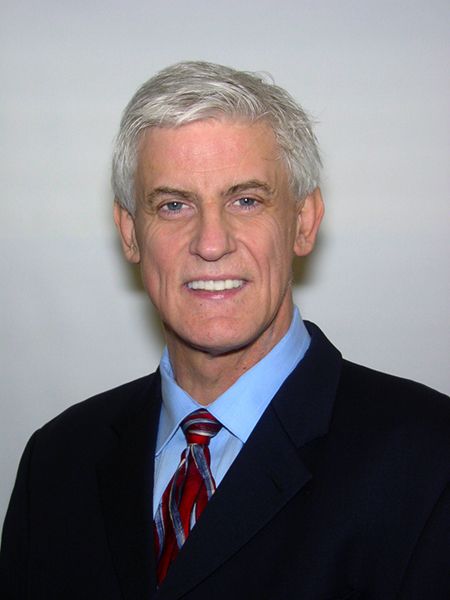

Colorado lawyers recently won a settlement for a Wyoming woman who alleged her former employer forced her to participate in Scientology religious practices.
Denver attorney Steven Murray of Murray Law, representing plaintiff Julie Rohrbacher, announced Jan. 8 he had reached a settlement agreement for an undisclosed amount with Teton Therapy, an occupational and physical therapy provider in Wyoming. The case was one of at least a half-dozen in the last decade in which employees alleged they were harassed or discriminated against for refusing to participate in the religion developed in the 1950s by science fiction writer L. Ron Hubbard.
“Throughout her employment, we allege, this issue of the L. Ron Hubbard teachings and the issue of Scientology was constantly a condition of employment that she had to deal with,” Murray said.
Rohrbacher sued her former employer in Dec. 2018 in the U.S. District Court for the District of Wyoming. She brought two claims under Title VII: one alleging religious harassment based on a hostile work environment, which was dismissed under summary judgment in early December, and another for religious discrimination that was set to go to trial earlier this month. Murray said settlement talks “became serious” in December, and attorneys in the case filed a motion to dismiss on Jan. 2 saying the settlement had been fully executed.
Rohrbacher first started working as a receptionist at Teton Therapy’s clinic in Lander, Wyoming in Nov. 2011. In the lawsuit, she claimed Teton Therapy subjected her to Scientology practices, teachings and principles as a condition of her employment. These included a required employment orientation and training course called “Breaking the Code,” which was written by Hubbard and draws heavily on Scientology’s idiosyncratic terms and concepts, according to the complaint. Teton Therapy allegedly denied Rohrbacher a pay raise unless she completed the course, which she started but didn’t finish due to her objections to the forced religious teachings, the lawsuit said.
In April 2013, Rohrbacher applied for a promotion to manager at the clinic. According to the lawsuit, she was told that in order to be promoted to manager, she would have to retake and complete the “Breaking the Code” course and attend a weeklong, “Scientology-based management course” near the church’s spiritual headquarters in Clearwater, Florida. The employer also directed Rohrbacher to consult with a Scientology life coach, according to the complaint.
Rohrbacher refused to complete the course, attend the training in Florida or consult with the life coach, the suit said, and she was notified she did not receive the promotion. In May 2013, she told her employer she was uncomfortable with Scientology concepts and teachings in the “Breaking the Code” course and didn’t want to be subject to further Scientology-based training. In response, the complaint said, Teton Therapy told her to quit and take two weeks’ severance pay or risk being fired, and her employment at the clinic ended on May 24, 2013.
Teton Therapy’s attorney, Tara Nethercott of Woodhouse Roden Nethercott in Cheyenne, Wyoming, sent a press release in response to requests for comment. The news release said that Rohrbacher had been “disciplined for unprofessional behavior in the workplace,” after which she “withdrew her application for continued employment and promotion within the company before claiming discrimination.”
In court filings, Teton Therapy also denied the Scientology-based training and practices were mandatory. “The Defendant provided a number of different business and personal development training programs to employees of the company, including ‘Breaking the Code,’” the company stated in its Jan. 2019 answer brief, adding it denied the course was religious.
“In this case, and in other cases, employers — even if they acknowledge that it’s an L. Ron Hubbard teaching — tend to view these teachings as management skills or management training,” Murray said, calling that argument “a very hard sell.”
Murray said proving claims under Title VII can be challenging because the employers typically have all the evidence in their possession, yet the burden of proof is on the plaintiff. “A plaintiff has to work hard in a lawsuit. They have to take depositions. They have to obtain documents,” he said. “So, it’s always a challenge. You have to litigate these cases in a comprehensive manner,” he added.
Another challenge for Rohrbacher was going up against a much more powerful defendant, according to Murray. “My client was a receptionist in an extremely small town — Lander, Wyoming — and Teton Therapy is very active in the community,” he said. The company has facilities in four cities across Wyoming and, according to its website, provides more than 200 free consultations in those communities each year.
While the case is unusual, it’s not the only employment discrimination case involving Scientology practices in recent years. “This is not an isolated incident in that other employers have been sued in both U.S. District Courts and state court for the same type of religious discrimination,” Murray said.
The U.S. Equal Employment Opportunity Commission sued Miami-based Dynamic Medical Services over allegations of forced Scientology practices in 2013, resulting in a $170,000 settlement. In 2012, an Oregon dentist was fined $348,000 by the state’s labor bureau after a dental assistant alleged she was threatened with termination if she refused to attend a Scientology-related training program. Similar allegations were made against a Nevada bottled water company, a Florida medical device company in 2016 and an Ohio lighting company in 2017.
Murray, whose previous experience includes representing the EEOC in civil rights cases across the country, said Rohrbacher’s lawsuit was “a fascinating case” to work on. “[When] an employee goes to work—particularly one that doesn’t have management authority or power—and all of a sudden, they’re asked to comply with these things that are very foreign to them, it can be very upsetting and alarming and threatening,” he said. Rohrbacher was also represented by Thomas Mitchiner of Mitchiner Law in Denver and Katherine Strike of Stanbury-Strike in Wyoming.
— Jessica Folker

